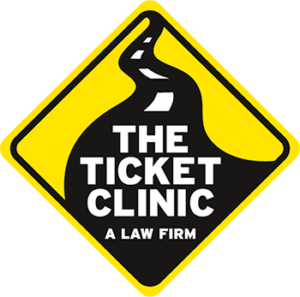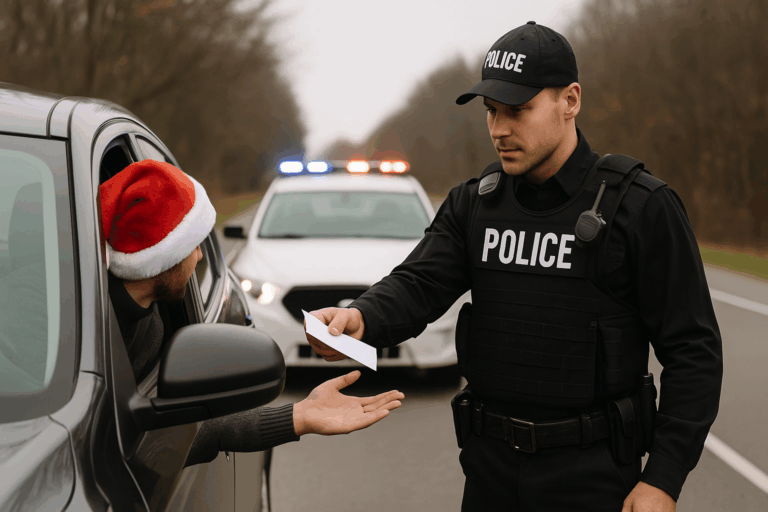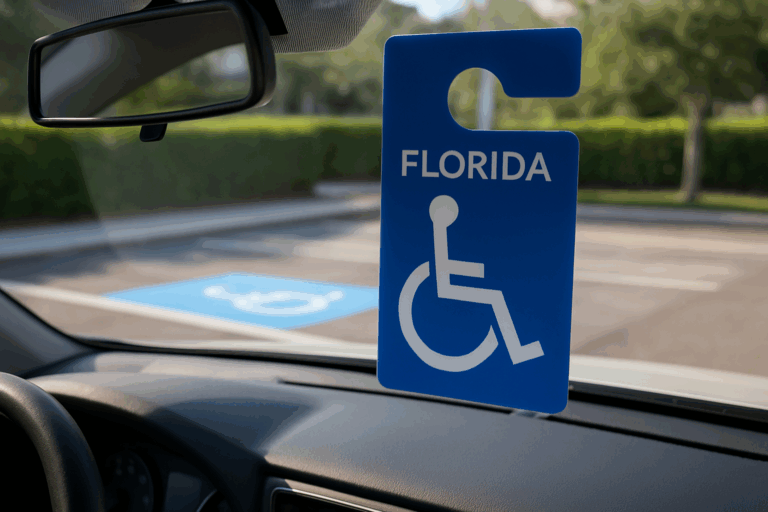In Florida, that sleek LED bar or flashing light strip on your car might not just catch eyes—it might catch law enforcement’s attention too. Custom lighting has become a mainstay in the car enthusiast world, from neon underglows to aggressive strobe patterns. But as of October 1, 2025, the stakes for some lighting choices get a whole lot higher.
The New Law on the Block: HB 253 and Lighting Penalties
Florida’s already strict law under §316.2397 prohibits civilian vehicles from showing red, red-and-white, or blue lights visible from the front. These colors are reserved almost exclusively for police, fire, and certain emergency or state-owned vehicles. The statute carves out only narrow exceptions—like for wreckers, construction gear, or escort vehicles—and even those are limited to specific times and conditions.
But HB 253 takes it a step further.
Starting October 1, if you’re caught using red or blue lights y you’re attempting to imitate a law enforcement stop—like pulling someone over or flashing lights at another driver—the offense is no longer a slap on the wrist. It’s a third-degree felony.
That means:
- Up to 5 years in prison
- UNA $5,000 fine
- And a permanent felony record
If that doesn’t make you think twice about your lighting setup, nothing will.
Custom Lights: Where the Line Gets Blurry
Here’s where it gets tricky. The law doesn’t target aesthetic lighting in general—but if your lights are visible from the front and resemble law enforcement colors or patterns, you’re entering dangerous territory. Even lights installed “just for looks” can still put you on the wrong side of a traffic stop.
Common setups that could get you pulled over include:
- Blue or red LED strips near or on the headlights
- Flashing strobe lights (even white ones, if they mimic emergency patterns)
- Modified grille lights resembling cop-style flashers
- Roof-mounted light bars used on highways or public roads
Even amber lights can raise suspicion when used improperly. Remember, certain flashing or rotating amber lights are only legal in operation—like for wreckers or utility vehicles—not for everyday street cruising.
The Exception List Isn’t Long
You might think a cool light setup is harmless. But unless you’re part of a small group of exempt vehicles, Florida law isn’t on your side.
The only vehicles legally allowed to display these types of lights include:
- Official police and fire vehicles
- Medical transport and organ donor vehicles
- Department of Corrections or emergency correctional responders
- Volunteer fire patrols with specific authorization
- Certain heavy government fire trucks with rear-only blue lights
- Roadwork and utility trucks—under strict conditions
- Escort vehicles—only while actively escorting
Even private security is restricted to green and amber lighting, and even that has a strict 50% limit on either color.
Car Culture vs. Law Enforcement Culture
The car scene in Florida is big. Street meets, track nights, cruising the coast—enthusiasts love to express themselves. But law enforcement sees it differently. Flashy lights that mimic cop cars aren’t just seen as annoying—they’re viewed as dangerous. They’re associated with impersonation, fake traffic stops, and sometimes even robbery setups.
And with the new law? Officers won’t hesitate to act.
Even if your intention is purely aesthetic, a quick judgment call by an officer on the roadside could lead to your vehicle getting impounded—or worse, criminal charges. Felony charges, even.
Bottom Line: Modify Smart
Before you install that next lighting kit, ask yourself:
- Is it visible from the front?
- Does it flash, rotate, or strobe?
- Is it blue, red, or white in color?
- Could it be mistaken for emergency lighting?
If the answer to any of those is yes, it’s time to rethink.
And if you’ve already installed questionable lights, consider disabling or removing them before October 1. The new law leaves no wiggle room when it comes to accusations of impersonating law enforcement.
Facing a Traffic or Lighting Violation? We Can Help.
At The Ticket Clinic, we’ve been defending Florida drivers for over 35 years. From custom car lovers to average commuters, we understand what it means to be pulled over for something you didn’t think was illegal. With HB 253 now in play, don’t risk your future on a lighting choice.
If you’ve been cited—or worse, charged—for illegal lighting, impersonation, or any traffic-related offense, call us. We’ll help fight the charge and protect your record.
Custom doesn’t have to mean criminal. Know the law, light your ride legally, and stay safe out there.

The Ticket Clinic Team
We are the largest law firm in the United States to focus soley on traffic-related offenses and traffic tickets. Over +35 years in business, we have developed deep knowledge about traffic court procedure and traffic laws. Our goal is to help keep drivers stay informed about legal issues that could affect them on the road. In our blog content, we like to explore insights in traffic ticket trends and other related issues.



